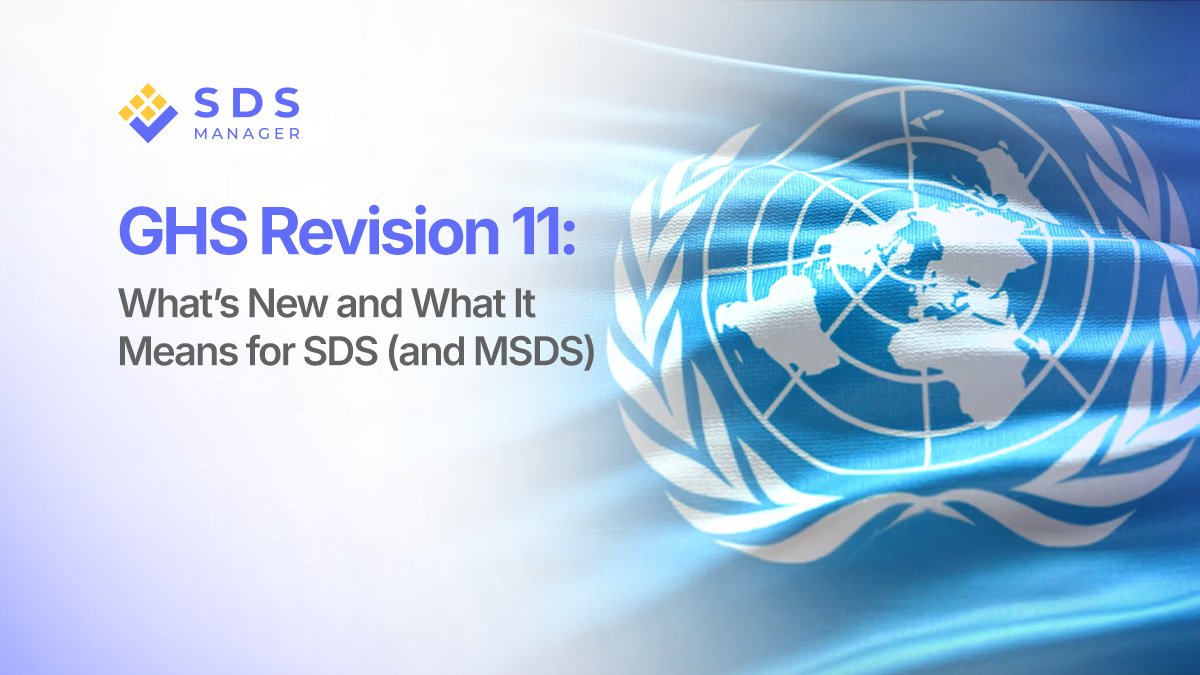

On September 12th 2025, the United Nations published the 11th revised edition of the Globally Harmonized System of Classification and Labelling of Chemicals (GHS Rev. 11), incorporating amendments adopted in late 2024.
While earlier GHS updates were mostly incremental, Revision 11 is notable because it introduces entirely new hazard concepts and refines the way information must appear on labels and Safety Data Sheets (SDS).
At the same time, it reinforces a trend that’s been underway for years: the old term Material Safety Data Sheet (MSDS) is increasingly outdated in modern regulation.
What Changed in GHS Revision 11?
GHS Rev. 11 builds on earlier editions but focuses on four main areas:
1) New “Hazardous to the Atmospheric Environment/System” Class
GHS Rev. 11 replaces the old “hazardous to the ozone layer” category with a broader class covering substances that harm the atmosphere, including those with high global warming potential (GWP) in Chapter 4.2. Over time, some refrigerants and climate-relevant chemicals will need updated labels and SDSs once countries adopt this change.
2) New Hazard Class for Chemicals Under Pressure
A new class for “chemicals under pressure” now covers liquids and solids stored under pressure, separate from aerosols and gases in Chapter 2.3. It recognises risks like container rupture, projectiles, and sudden release of contents, which will eventually need to be reflected on labels and SDSs.
3) Skin Sensitisation: Non-Animal Methods
Rev. 11 updates skin sensitisation rules to better use non-animal test methods and integrated evidence in Chapter 3.4. This gives clearer criteria for classification and supports the global move away from animal testing, affecting how sensitisation is reported in SDS Sections 2 and 11.
4) Updated Statements, Labels and SDS Guidance
Precautionary statements have been clarified and sample label layouts updated so hazards and instructions are easier to understand. New guidance for simple asphyxiant gases and aligned SDS wording will require future tweaks to both labels and SDSs once Rev. 11 is written into national law.

